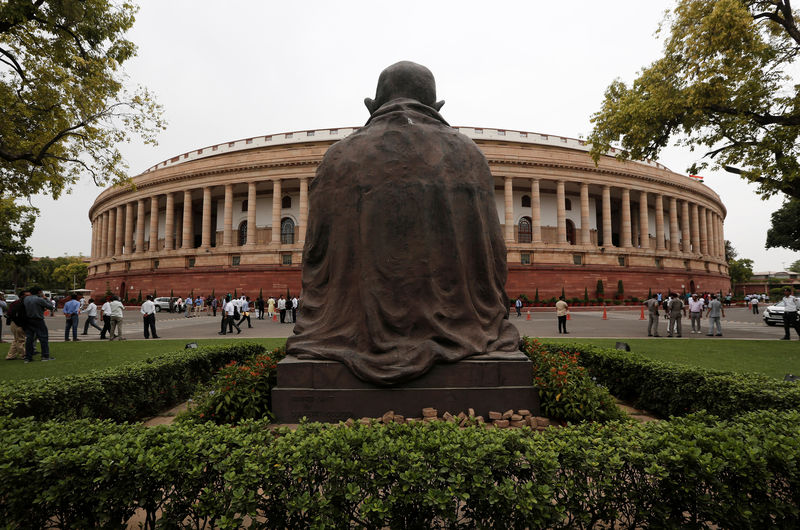By Zeba Siddiqui and Nigam Prusty
NEW DELHI (Reuters) - India's parliament on Thursday passed an amendment to the right to information law despite protests from activists who say the changes would diminish the independence of the commissioners who administer it.
The Right to Information Act, enacted in 2005, allows citizens to seek information from public bodies.
The amendment gives the government the power to fix the term and salary of the information commissioners, who are the final authorities to which citizens can appeal to seek information.
Before the changes to law, their terms were fixed at five years and the salaries were on par with those of the country's election commissioners.
By giving the government the power to decide their salaries and terms, the changes would compromise the independence of the information commissioners, activists and several former information commissioners say.
“If they (information commissioners) are beholden to the government for their salary, tenure and terms of service, they will be under an obligation," said Wajahat Habibullah, a former information commissioner.
"This goes even for those with the most undoubted integrity ... You don’t really have to be corrupt to toe the government line then," he told reporters, alongside other former colleagues.
The government rejects complaints that the bill compromises the autonomy of the commissioners.
It has said the changes are needed as the salaries of election commissioners and the information commissioners could not be on par, since they have different mandates.
The amendment bill was passed in the upper house of the parliament late on Thursday with a voice vote as the entire opposition walked out after the government rejected its demand for the bill to be referred to a parliamentary committee for deliberation.

India's lower house of parliament, which is dominated by the ruling Bharatiyra Janata Party-led coalition, had passed the amendment bill on Monday.